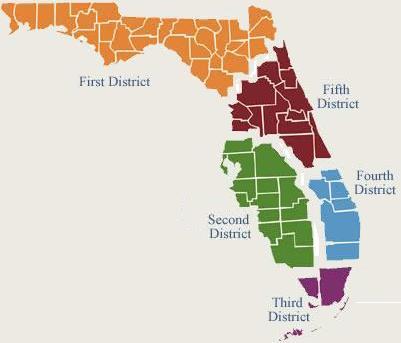Florida Supreme Court Implements Electronic Filing and Other Rule Changes
The Florida Supreme Court, in a revised Order SC11-399 (Oct. 18, 2012) [.pdf], has adopted a host of rule changes at every court level in order to implement electronic filing and service. The centerpiece of the change to electronic filing are new Florida Rules of Judicial Administration Florida Rules of Judicial Administration 2.520 (Documents) and 2.525 (Electronic Filing). Together, these two rules govern the filing of any document that is a “court record.” Rule 2.520 is the “why,” defining electronic records, and Rule 2.525 is the “how-to”, explaining the nuts and bolts of how to file electronically. So be sure to read both very carefully.
To implement these new system-wide rules, the Court also adopted changes to the rules of civil, criminal, family, probate, small claims, and appellate procedure.
Electronic filing becomes mandatory in civil, probate, small claims, and family law divisions of the trial courts, as well as for appeals to the circuit courts in these categories of cases, on April 1, 2013, at 12:01 a.m. For criminal, traffic, and juvenile divisions of the trial courts, as well as for appeals to the circuit court in these categories of cases, the effective date is October 1, 2013 at 12:01 a.m.
The changes are generally technical, but wide-sweeping. The rules affected include Florida Rules of Appellate Procedure 9.020 (Definitions), 9.110 (Appeal Proceedings to Review Final Orders); 9.120 (Discretionary Proceedings to Review Decisions of District Courts of Appeal); 9.125 (Review of Trial Court Orders and Judgments Certified by the District Courts of Appeal as Requiring Immediate Resolution by the Supreme Court); 9.130 (Proceedings to Review Non-Final Orders and Specific Final Orders); 9.140 (Appeal Proceedings in Criminal Cases); RULE 9.141. (Review Proceedings in Collateral or Postconviction Criminal Cases); RULE 9.142. (Procedures for REview in Death Penalty Cases); RULE 9.145 (Appeal Proceedings in Juvenile Delinquency Cases); RULE 9.146. (Appeal Proceedings in Juvenile Dependency and Termination of Parental Rights Cases); RULE 9.160. (Discretionary Proceedings to Review Decisions of County Courts); 9.180 (Appeal Proceedings to Review Workers’ Compensation Cases); 9.200 (the Record); 9.210 (Briefs); 9.220 (Appendix); 9.360 (Joinder); 9.500 (Advisory Opinions to the Governor); 9.510 (advisory Opinions to Attorney General); 9.900 (forms).
I encourage every practicing attorney to read SC11-399 very carefully. The most unfortunate change, in my view, is that the Court renumbered the definition of Rendition, from 9.020(h) to 9.020(i). The new 9.020(h) could easily have been put at the end, but now practitioners must be aware to both cite to the correct new subdivision when citing the rule on rendition, and to research both the old and the new numbering system when conducting research. I don’t see why adding such confusion over an already high-confusion area of the rules was really necessary.

